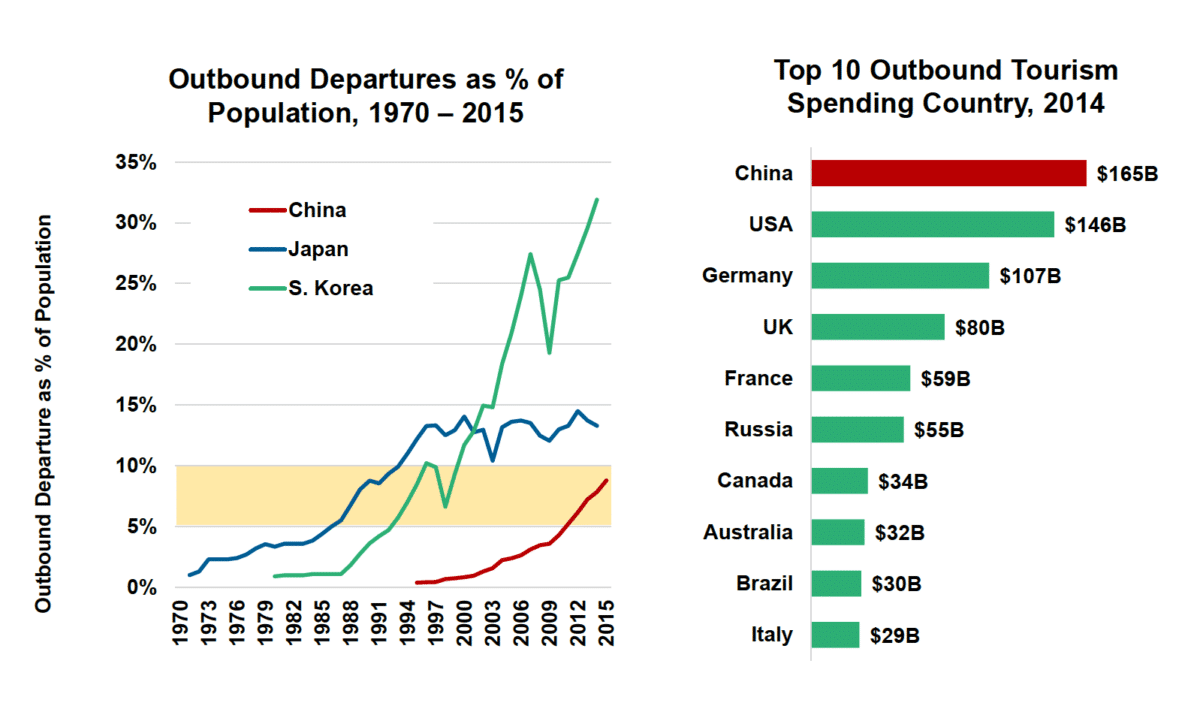Mary Meeker’s Internet Report has just been released. What does it say about WeChat this year?
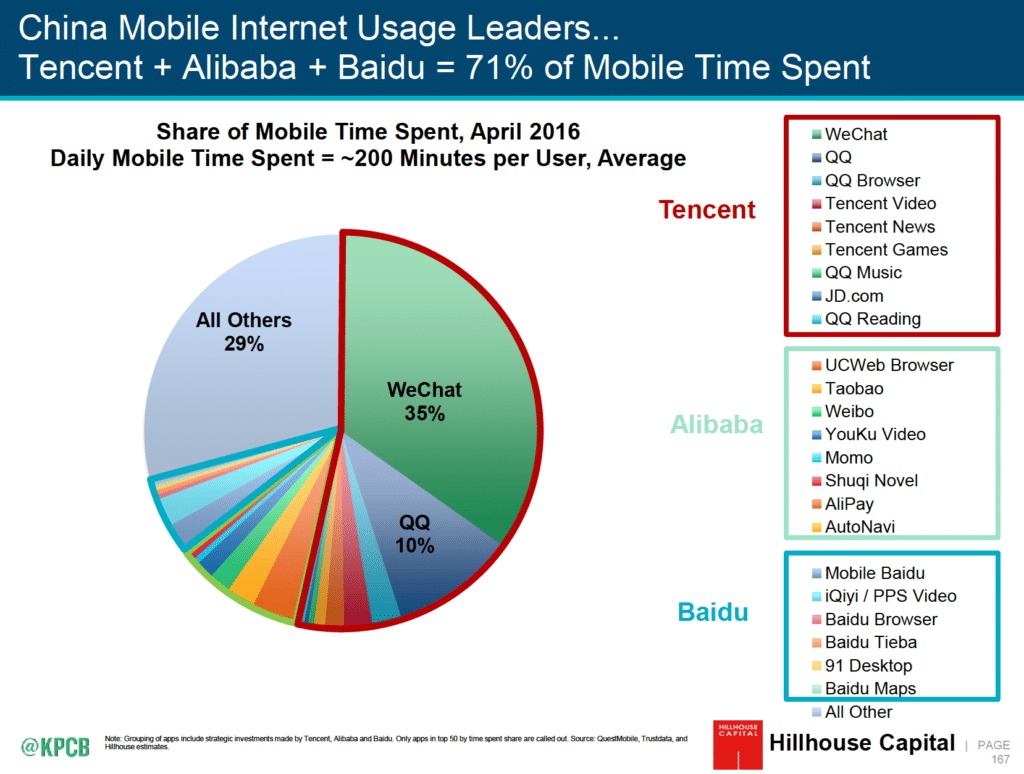 Tencent is the clear winner in the mobile market in China, representing more than 50% of mobil usage. WeChat alone represents 35% of time spent on mobile, which is more than Baidu and Alibaba combined. This is a 7% increase from last year according to data released by Tencent. The average user spends 70 minutes on WeChat every day.
Tencent is the clear winner in the mobile market in China, representing more than 50% of mobil usage. WeChat alone represents 35% of time spent on mobile, which is more than Baidu and Alibaba combined. This is a 7% increase from last year according to data released by Tencent. The average user spends 70 minutes on WeChat every day.
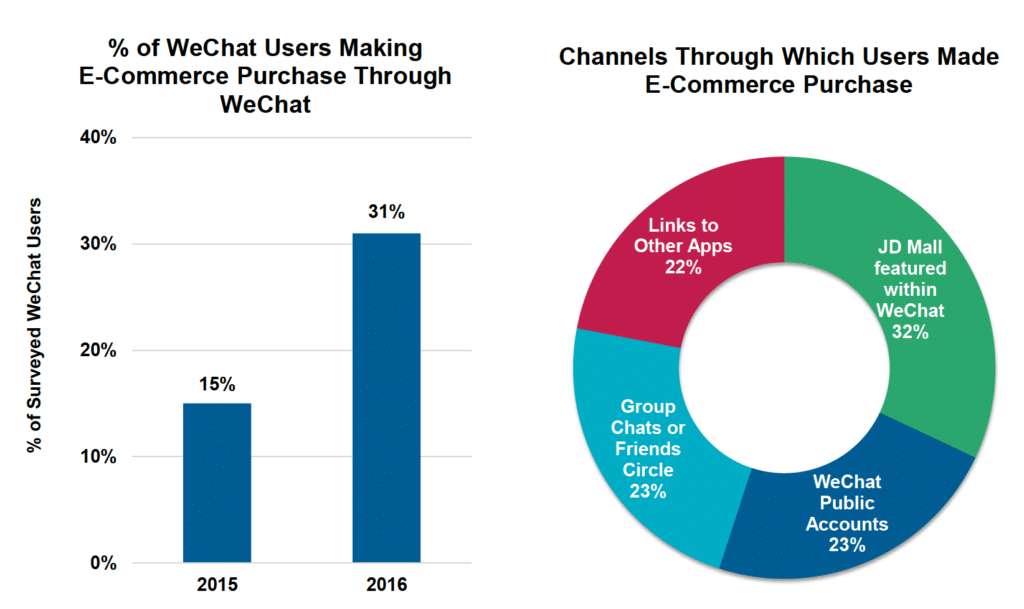
The number of WeChat users who have made a purchase through WeChat has doubled in a year, to an impressive 31%. Among which 46% of purchases are made directly within WeChat. WeChat is also the initial channel where users find out about a product or promotion and redirect to JD.COM and third party Apps.
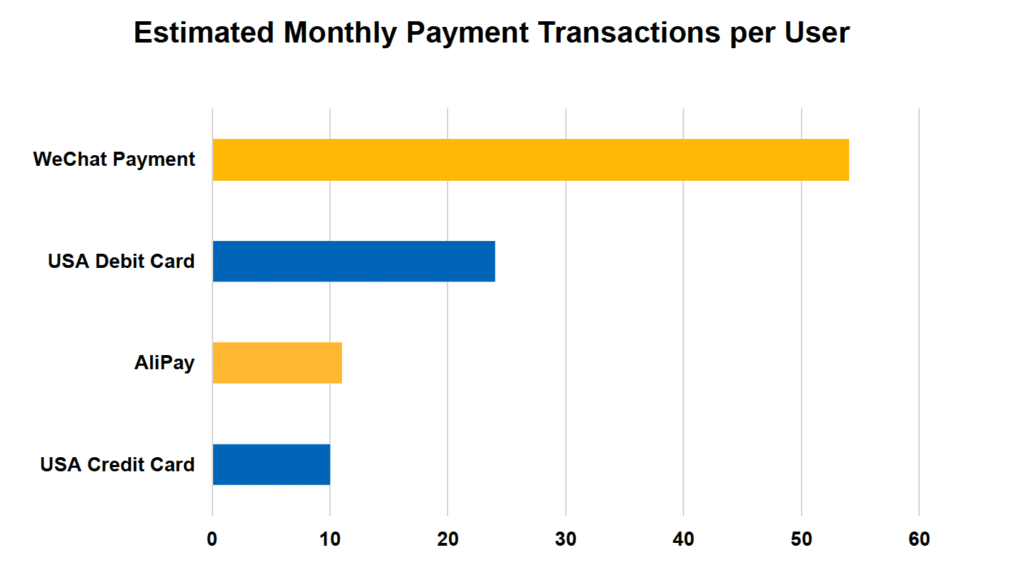
Mobile payment is the new credit card. According to estimate of Hillhouse Capital, WeChat payment is used 54 times per month, that’s almost 4 times more than Alipay. This is partly due to users preferring to use Alipay for larger value purchases, while WeChat is frequently used for smaller amount transactions like red envelops.
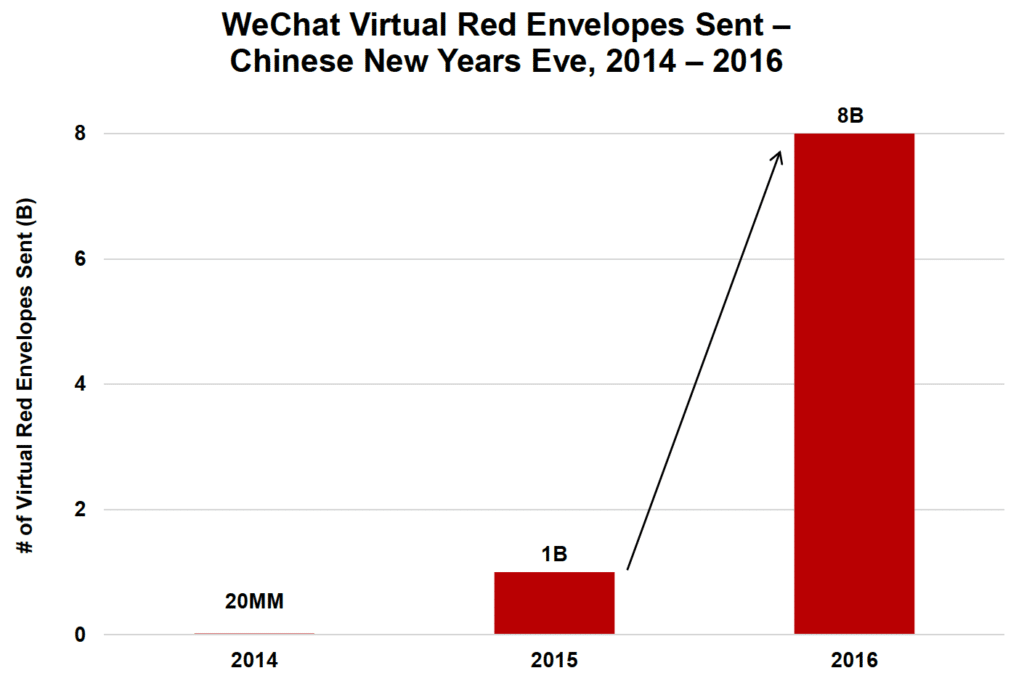
The WeChat red envelop campaign was the key turning point in promoting WeChat payment as a major contender for payment.
Besides New Year’s campaign, WeChat offline payment is a commonly used strategy to drive in-store traffic to online.
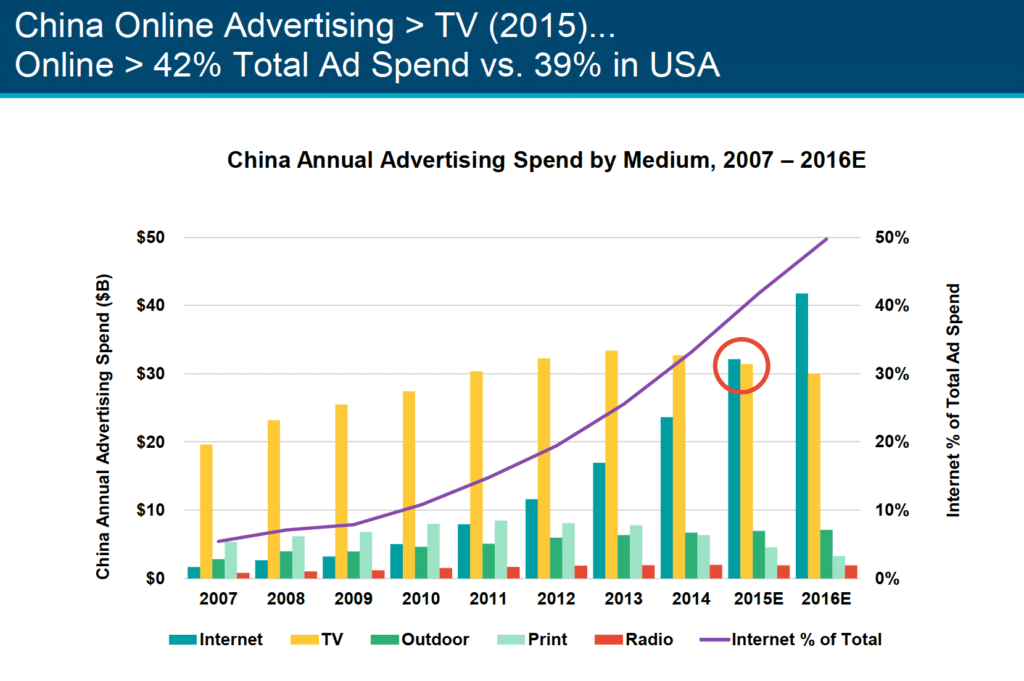
For the first time, internet advertising spending has surpassed traditional TV advertising. This aligns with the strategy focus of WeChat this year: increase advertising income.
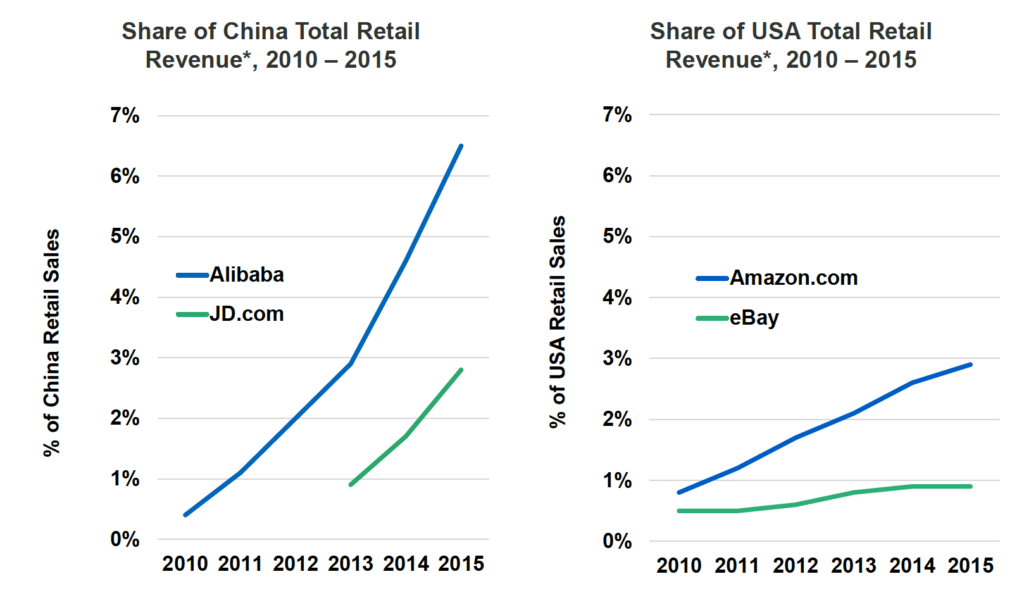
China’s e-commerce sales are growing at a much faster rate than US platforms. Alibaba and JD.COM combined are making up 10% of China’s total retail sales.
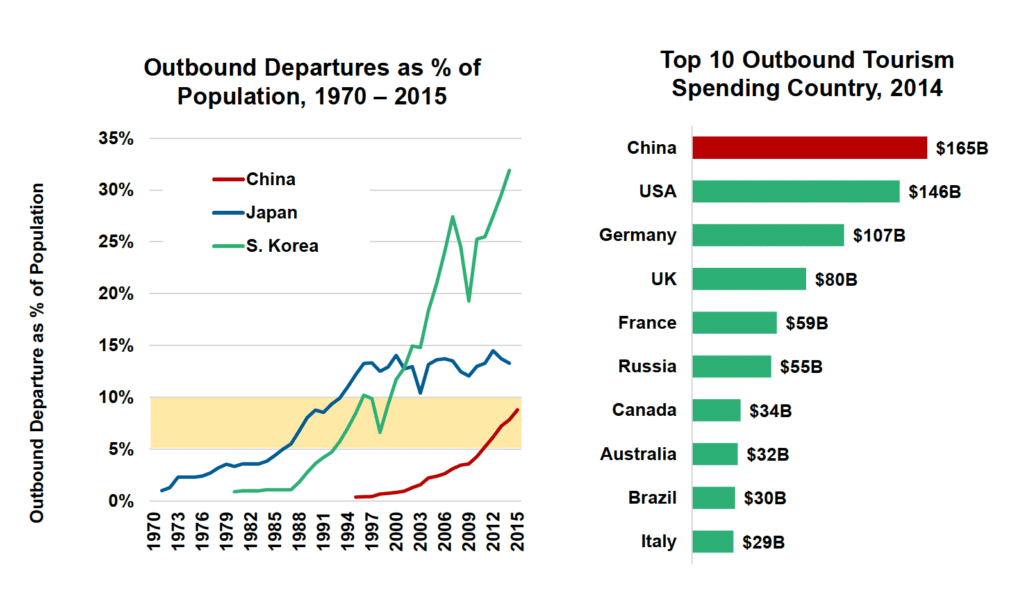
China has surpassed USA as world’s biggest outbound tourism spending country even though only 10% of the population is making these outbound trips. China still has huge growth potential in outbound travel spending.
Other Messaging Apps
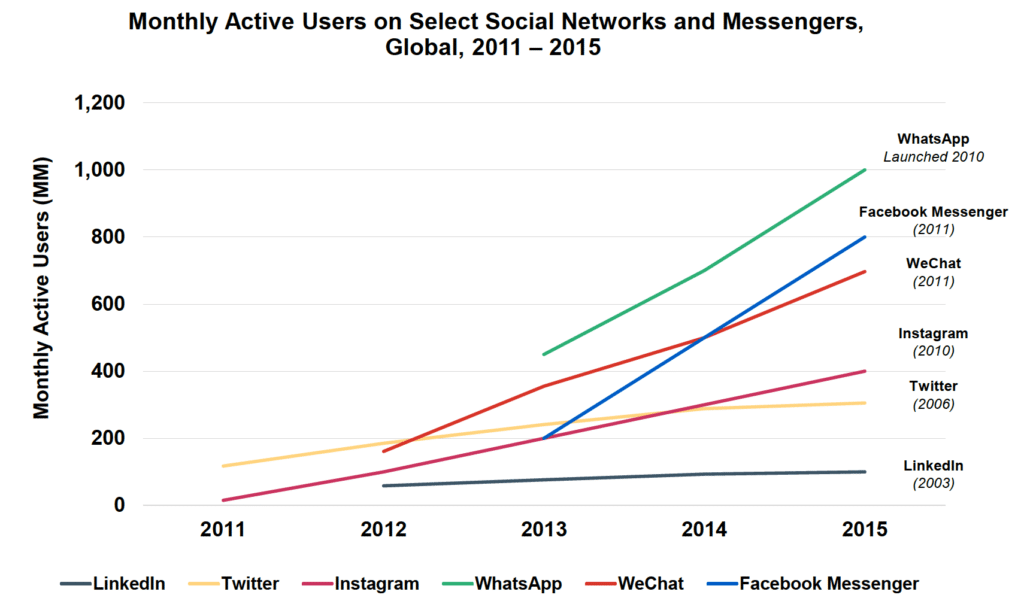
Messaging Apps are growing and evolving fast.
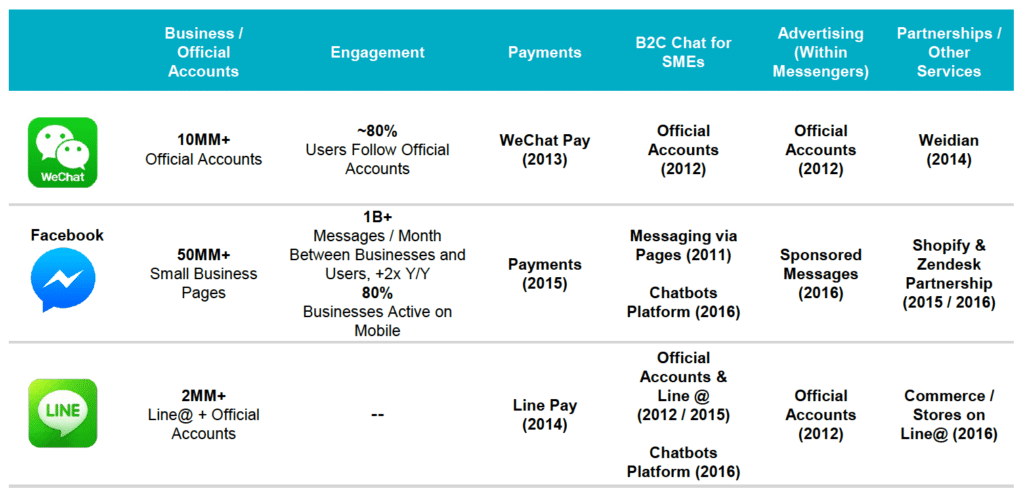
Messaging Apps are all moving towards becoming more integrated platforms.
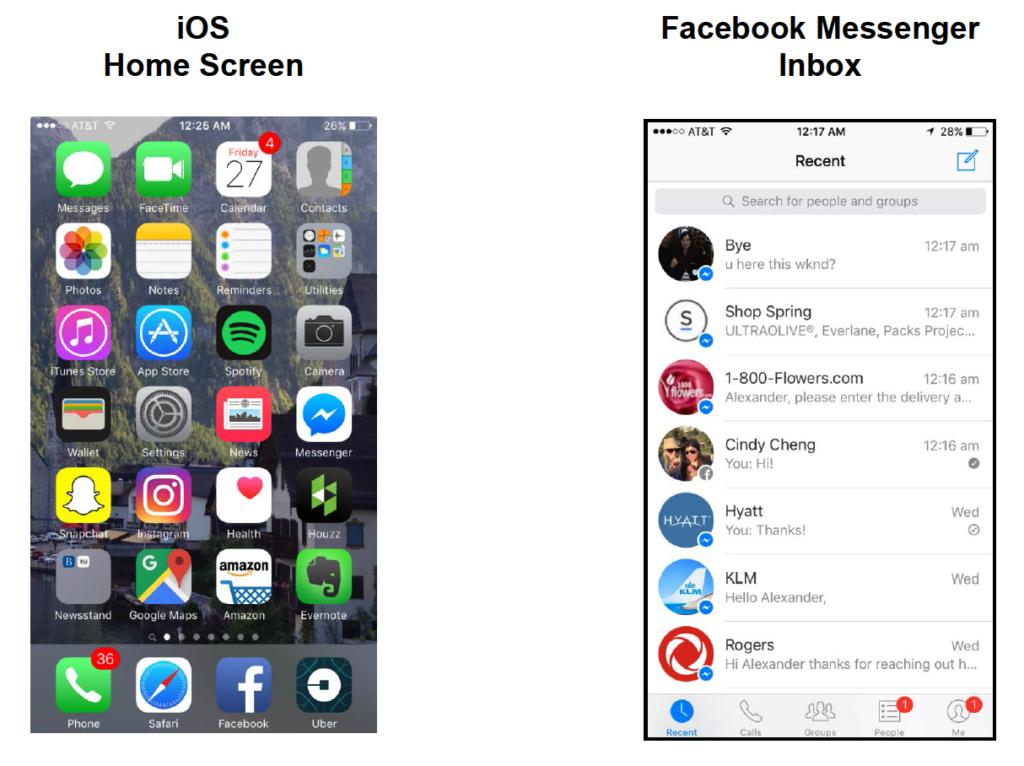
Messaging Apps are becoming the new Home screen.
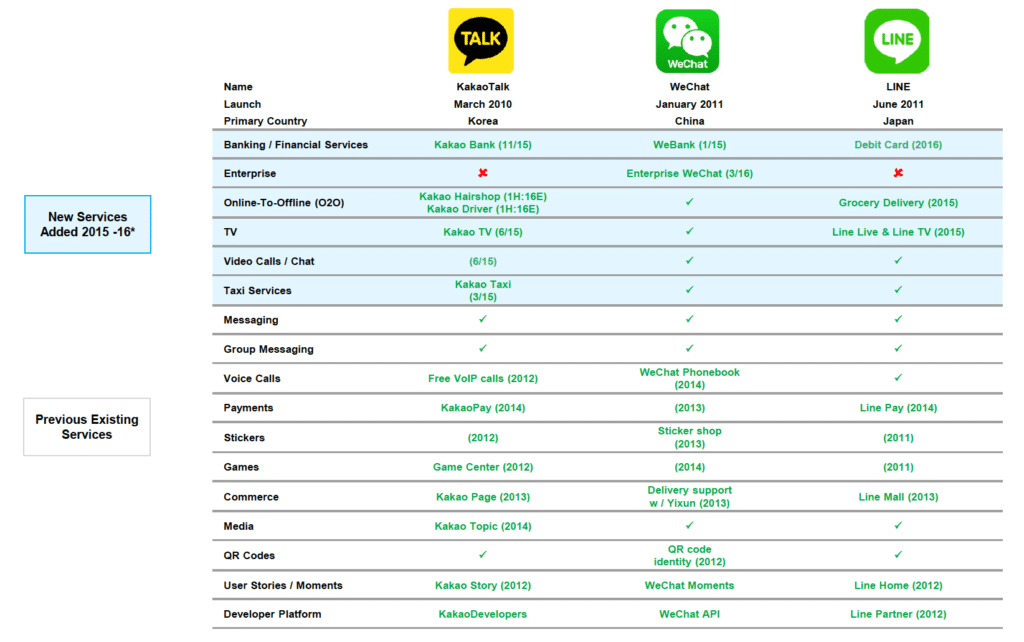
WeChat, Line and KakaoTalk are leading the way in value added services and leading users to business related conversation. 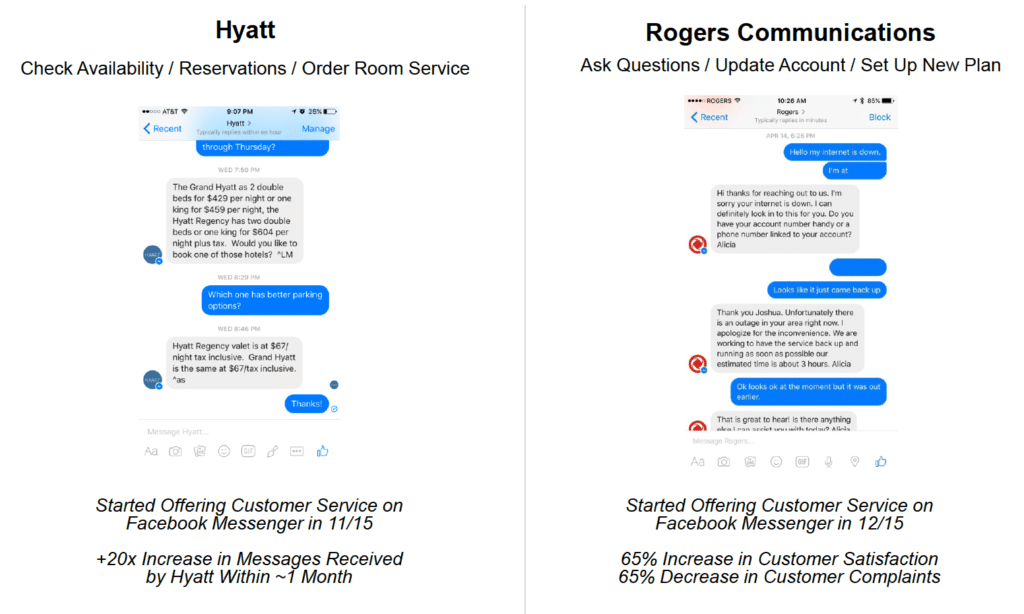
Facebook Messaging is catching up with WeChat by adding customer service. Facebook also starts to open up it’s API for more complicated integration like purchasing flight tickets.
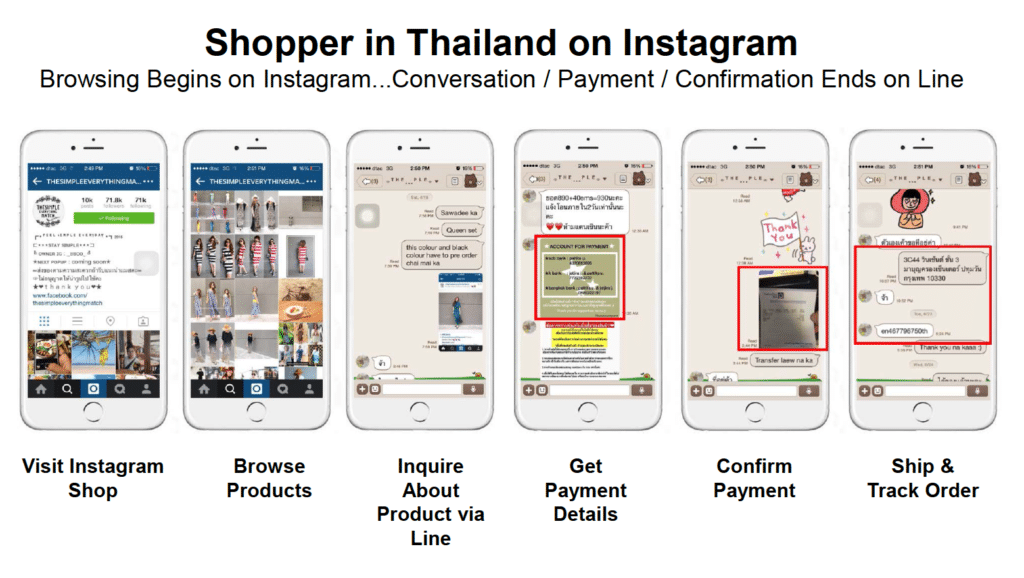
Although users in Thailand still needs to switch between Instagram and Line, making manual inputs in order to make a purchase on social media. Seems like Instagram has a lot to catchup with e-commerce features.

